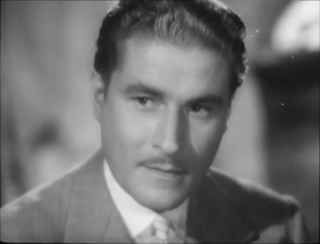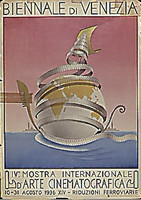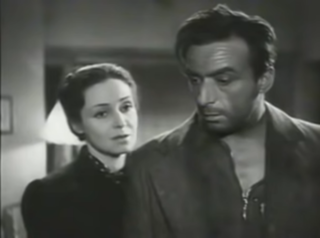Related Research Articles

The Venice Film Festival or Venice International Film Festival is an annual film festival held in Venice, Italy. It is the world's oldest film festival and one of the "Big Five" International film festivals worldwide, which include the Big Three European Film Festivals, alongside the Toronto International Film Festival in Canada and the Sundance Film Festival in the United States. These festivals are internationally renowned for giving creators the artistic freedom to express themselves through film. In 1951, FIAPF formally accredited the festival.

Giacomo Matteotti was an Italian socialist politician and secretary of the Unitary Socialist Party (PSU). He was elected deputy of the Chamber of Deputies three times, in 1919, 1921 and in 1924. On 30 May 1924, he openly spoke in the Italian Parliament alleging the fascists committed fraud in the 1924 general election, and denounced the violence they used to gain votes. Eleven days later, he was kidnapped and killed by the secret political police of Benito Mussolini.

The Golden Lion is the highest prize given to a film at the Venice Film Festival. The prize was introduced in 1949 by the organizing committee and is now regarded as one of the film industry's most prestigious and distinguished prizes. In 1970, a second Golden Lion was introduced; this is an honorary award for people who have made an important contribution to cinema.

Ida Irene Dalser was the first wife of Italian fascist dictator Benito Mussolini.

Amedeo Nazzari was an Italian actor. Nazzari was one of the leading figures of Italian classic cinema, often considered a local variant of the Australian–American star Errol Flynn. Although he emerged as a star during the Fascist era, Nazzari's popularity continued well into the post-war years.

Fosco Giachetti was an Italian actor.

The Volpi Cup for Best Actress is an award presented by the Venice Film Festival. It is given by the festival jury in honor of an actress who has delivered an outstanding performance from the films in the competition slate. It is named in honor of Count Giuseppe Volpi di Misurata, the founder of the festival. The 1st ceremony was held in 1932, when Helen Hayes received the Volpi Cup for the title role in The Sin of Madelon Claudet (1931)—this was the only time that the award was chosen by public voting. From 1942 to 1945, the festival was suspended because of World War II. The student protests in May 1968 opened a period of institutional changes, with no prizes were awarded from 1969 to 1979.

The Great King is a 1942 German drama film directed by Veit Harlan and starring Otto Gebühr. It depicts the life of Frederick the Great, who ruled Prussia from 1740 to 1786. It received the rare "Film of the Nation" distinction. It was part of a popular cycle of "Prussian films".

The 3rd annual Venice International Film Festival was held between 10 August and 1 September 1935. This festival saw the introduction of the Coppa Volpi for the acting awards.

The 4th annual Venice International Film Festival was held between 10 and 31 August 1936. This year saw an international jury nominated for the first time.
The 5th annual Venice International Film Festival was held between 10 August and 3 September 1937. The new Palazzo del Cinema building was completed for this year's festival. It has been used as the venue since, excluding the years 1940 to 1948.

The 6th annual Venice International Film Festival was held between 8 and 31 August 1938. The festival screened a French cinema retrospective, spanning works from 1891 to 1933.
The Golden City, is a 1942 German color film directed by Veit Harlan, starring Kristina Söderbaum, who won the Volpi Cup for Best Actress.

Bengasi is a 1942 Italian war film directed by Augusto Genina and starring Fosco Giachetti, Maria von Tasnady and Amedeo Nazzari. The film was shot at Cinecittà in Rome. The film was a propaganda work, designed to support the Fascist regime of Benito Mussolini. It portrays Allied atrocities in "Bengasi Italiana", such as the murder of a peasant by a group of drunken Australian soldiers.
The "7th" annual (void) Venice International Film Festival was held from 8 August to 1 September 1939. This edition has been strongly influenced by the Fascist regime and was deserted by the United States of America. The Mussolini Cup was won by the historical film Cardinal Messias, while the other main prizes were not awarded.

The "8th" annual (void) Venice International Film Festival was held from September 1 to September 8, 1940, less than three months after Italy had belatedly entered the Second World War as Germany's ally. The events were held in places far away from the Lido, and very few countries participated due to World War II and directors that were members of the Rome–Berlin axis. In fact the Festival lost its ‘international’ designation that year, as the war had reduced the number of participating nations to just three: Italy, Germany and, in a sparring role, Hungary. It became therefore the "Manifestazione cinematografica italo-tedesca", to reflect its Italo-German character. The two countries participated with seven feature films each, while Hungary had three. Additionally, a strong fascist political meddling from the Italian fascist government under Benito Mussolini had led to Italy experiencing a period of cultural depression oppressed by fascist propaganda.
The "9th" annual (void) Venice International Film Festival was held from 30 August to 14 September 1941. Together with the 1940 and 1942 it is 'considered void- as if they did not happen', as the events were carried out in places far away from the Lido, and very few countries participated due to World War II, with an absolute monopoly of institutions and directors that were members of the fascist Rome-Berlin axis. Additionally, a strong fascist political meddling from the Italian fascist government under Benito Mussolini had led to Italy experiencing a period of cultural depression oppressed by fascist propaganda.

The 10th annual Venice International Film Festival was held from 11 August to 1 September 1949. The Venice Film Festival came back permanently to the Palazzo del Cinema on the Venice Lido.
The 29th annual Venice International Film Festival was held from 25 August to 7 September 1968.

The Volpi Cup for Best Actor is the principal award given to actors at the Venice Film Festival and is named in honor of Count Giuseppe Volpi di Misurata, the founder of the Venice Film Festival. The name and number of prizes have been changed several times since their introduction, ranging from two to four awards per edition and sometimes acknowledging both leading and supporting performances.
References
- ↑ "The 1940s" . Retrieved October 8, 2013.
- ↑ "The 30s" . Retrieved October 11, 2013.